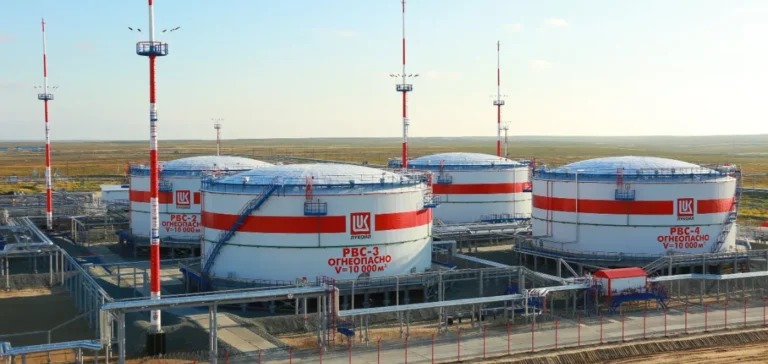An explosion occurred on Tuesday at an oil processing facility owned by Lukoil-Perm, a subsidiary of the Russian oil company NK Lukoil PAO. The incident involved an empty reservoir located within a hydrocarbon processing complex, and no personnel were present at the site when the explosion occurred. According to initial analysis by on-site technicians, the blast was triggered by a chemical reaction between hydrocarbon residues and oxygen.
Circumstances of the incident
The company’s safety teams swiftly confirmed the absence of injuries or casualties among personnel working at the facility. The reservoir, empty at the time of the explosion, is believed to have accumulated residual combustible vapors, causing an explosive reaction upon contact with the oxygen present inside the tank. A detailed investigation has been immediately initiated to precisely determine the exact cause of this chemical reaction, as well as to verify the integrity of other installations within the complex.
Local officials from Lukoil-Perm stated that overall oil production activities in the region have not been impacted by this event. However, internal safety teams have intensified preventive inspections across all similar oil installations operated by the company to mitigate the risk of a recurrence.
Reactions and preventive measures
As a precautionary measure, an additional evaluation of existing safety procedures is currently underway at other sites operated by Lukoil throughout Russia. This review process could lead to updates in inspection and maintenance protocols for hydrocarbon storage tanks. Although the event did not cause significant disruptions to operations, it highlights the constant importance of operational safety within the oil industry.
The incident will be closely monitored by analysts in the energy sector due to its potential implications for industrial safety standards in Russia. Final conclusions from the internal investigation will be publicly disclosed following approval by competent authorities, who may consider additional regulatory inspections at other oil facilities across the country.






















